AUBURN — The skies were overcast and it started to drizzle Friday afternoon as the footbridge between Lewiston and Auburn was dedicated to John Jenkins, the former mayor of both cities.
There were hundreds of people at the dedication but not a single one of them seemed to mind. Nobody ran for cover or abandoned the ceremony even as the drizzle turned to rain. Even a year and a half after his passing, Jenkins still had a way of uniting people and keeping them captivated.
“People admired John Jenkins because he embodied love and devotion to our community,” Lewiston Mayor Carl Sheline said, “and because he was someone people looked to as a leader they could trust.”
And with that it became official. The Twin Cities have a very old bridge with a new name: The John T. Jenkins Memorial Bridge, to be precise.
The footbridge connects Bonney Park in Auburn and Simard-Payne Memorial Park in Lewiston.

Gov. Janet Mills, right, shares a moment Friday with Ann Parker, partner of John Jenkins, after unveiling the plaque dedicating the John T. Jenkins Memorial Bridge between Lewiston and Auburn. Russ Dillingham/Sun Journal
Jenkins, a New Jersey native, was a motivational speaker and martial arts expert who was elected to the state Senate representing Lewiston in 1996, the first African American to serve in the Senate. He also won elections for mayor of Auburn and Lewiston, including a write-in campaign for mayor in Auburn in 2007.
Jenkins died Sept. 30, 2020, at the age of 68. Last fall, the city councils in Lewiston and Auburn voted unanimously to name the footbridge after him.
At the ceremony Friday, new signs announcing the new name for the footbridge were unveiled on both ends. A ribbon was in the middle of the bridge, representing the unification of Lewiston and Auburn in honoring Jenkins, one of their most beloved sons.
“We are claiming him for Lewiston, we are claiming him for Auburn and we are claiming him for Maine,” Gov. Janet Mills said.
Ann Parker, Jenkins’ longtime companion, noted the symbolism of naming a bridge after a man who dedicated so much of his career to bridging the divides between people of the two cities.
“I really hope that when you walk across that bridge, you feel the spirit of John,” she said. “If someone’s having a difficult day, walk across John’s bridge; I guarantee it’s going to lift you up. If you’re having a wonderful, awesome day, walk across the bridge, because John’s gonna be there with you in all his awesomeness.”
And just about everyone in the crowd at the ceremony could tell stories about that awesomeness.

John Jenkins’ partner, Ann Parker, right, addresses the crowd Friday in Bonney Park during the dedication of the John T. Jenkins Memorial Bridge. Russ Dillingham/Sun Journal
Auburn Mayor Jason Levesque recalled how as a school boy, he was inspired by one of Jenkins’ pep talks.
Jenkins, most would agree, so enthusiastic, optimistic and downright likeable, it was hard for anyone not to be inspired when the man got to talking.
“Passion was something that John just oozed,” Levesque said.
Like so many others, the Auburn mayor found the dedication of the bridge to be a perfect way to honor the man who had touched so many lives in so many different ways.
“John’s legacy is mighty,” Levesque said. “Let this bridge be eternal, just like John’s spirit.”
Even as the group walked across the bridge, from Bonney Park in Auburn to the Lewiston side, the matter of Jenkins’ greatness was still being discussed, though in less public tones.
“He was just a great human being,” one man murmured.
“He taught me so much,” said another.

Author Chuck Radis signs books Friday night at the entrance of the John T. Jenkins Memorial Bridge in Lewiston. Russ Dillingham/Sun Journal
Those are exactly the kinds of thoughts and memories Parker wants people to have when they use the bridge.
“It’s just difficult to imagine that he’s no longer here,” she said, “but his light is here. His spirit is here. And I just hope that you’ll all take that with you.”
For some, it was difficult to describe what it was that made Jenkins so special. Was it his political work? His pep talks? His athleticism or inexorably sunny disposition?
“John Jenkins was many things to many people,” Sheline said. “His list of professional accomplishments is exemplary and admirable. And yet, when I speak to people who knew him, his professional accomplishments are never what they most admired. People across Lewiston-Auburn and indeed across Maine, admired John Jenkins for his passionate defense of civil rights, his work advancing equality, and his willingness to serve his community in whatever way he could.
“They admired him for his commitment to democracy,” Sheline said, “his ability to motivate people to act, and his compassion for people no matter who they are in the world.”
“What I remember most,” Mills said, “was not simply the titles and positions he held, but rather how he held them; the character he showed and the manner in which he held those public offices. To me, he never forgot the inherent and intangible power of the office.”

Central Maine Medical Center tai chi instructor June Turcotte and student Fred Dibello practice tai chi on Friday night in Bonney Park before the dedication of the John T. Jenkins Memorial Bridge in Auburn. Russ Dillingham/Sun Journal
Jenkins, Mills mused, possessed the rare ability to make people feel good simply by showing up.
“And the way he showed up, day after day, smiled at people even on bad days, gave them the hope and confidence that our cities and our region could grow and become healthier and better — and we could be better to one another. That exuberance was exhibited by John Jenkins every day. He was the picture of optimism and confidence.”
The bridge is officially renamed, but honoring Jenkins is not yet over in the Twin Cities. A public memorial service and celebration of life will be held at 2 p.m. Saturday at the Lewiston Armory at 65 Central Ave.
Send questions/comments to the editors.


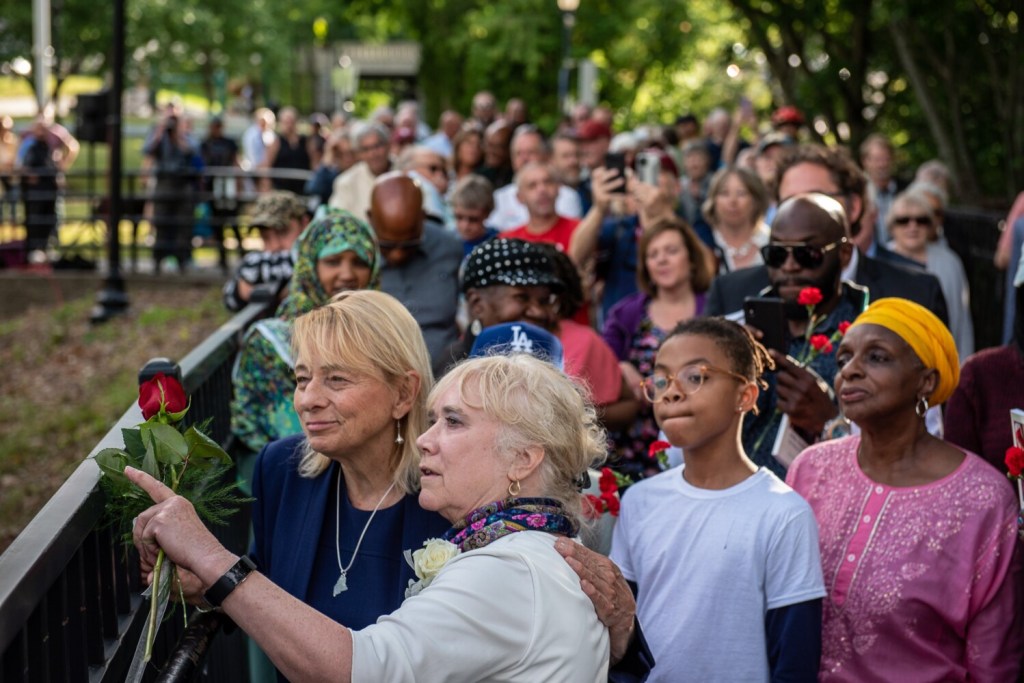
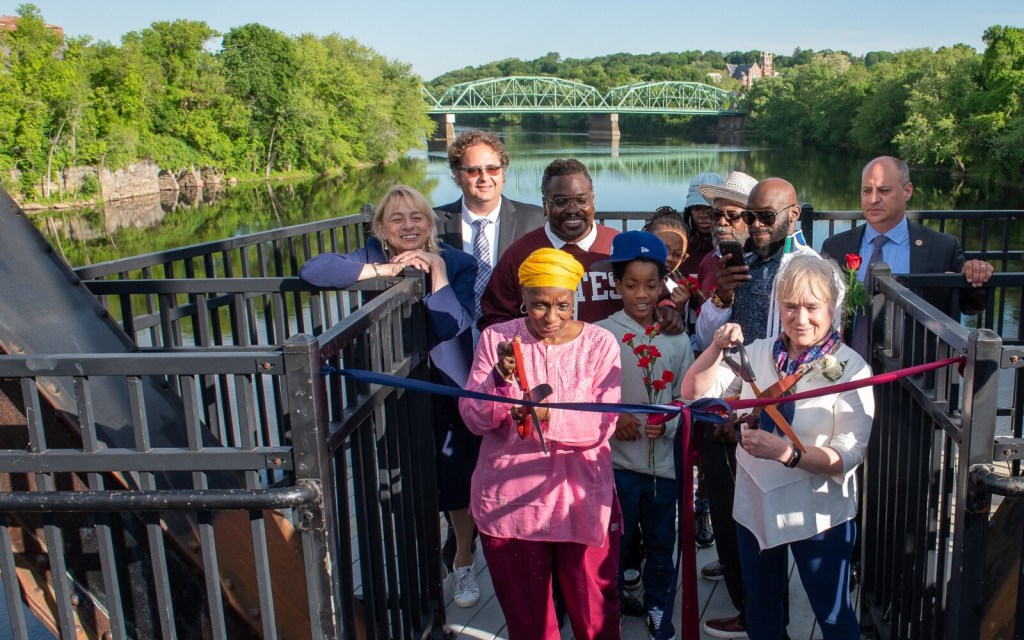
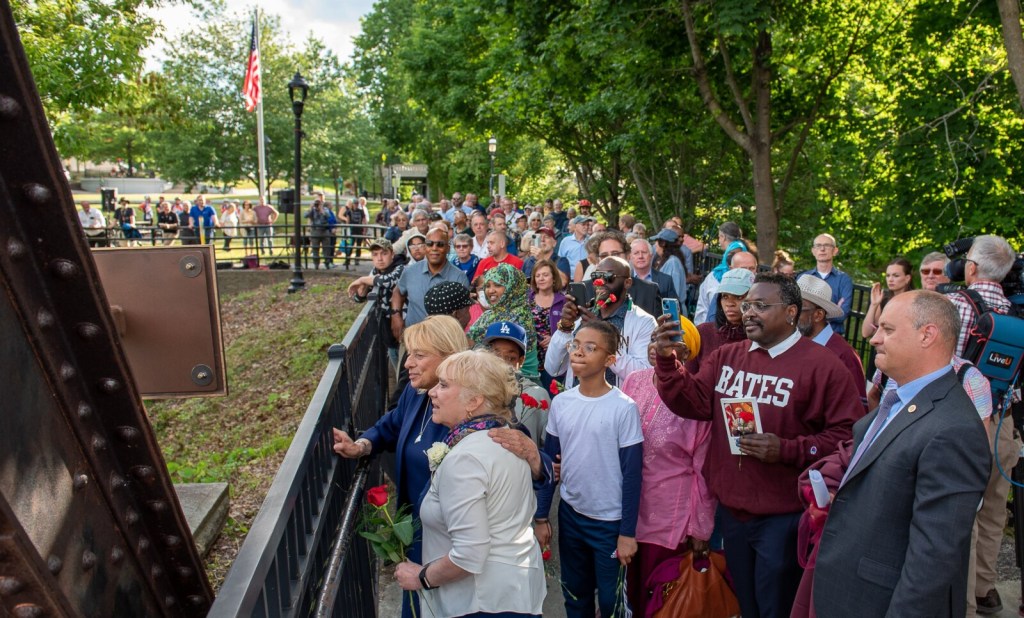
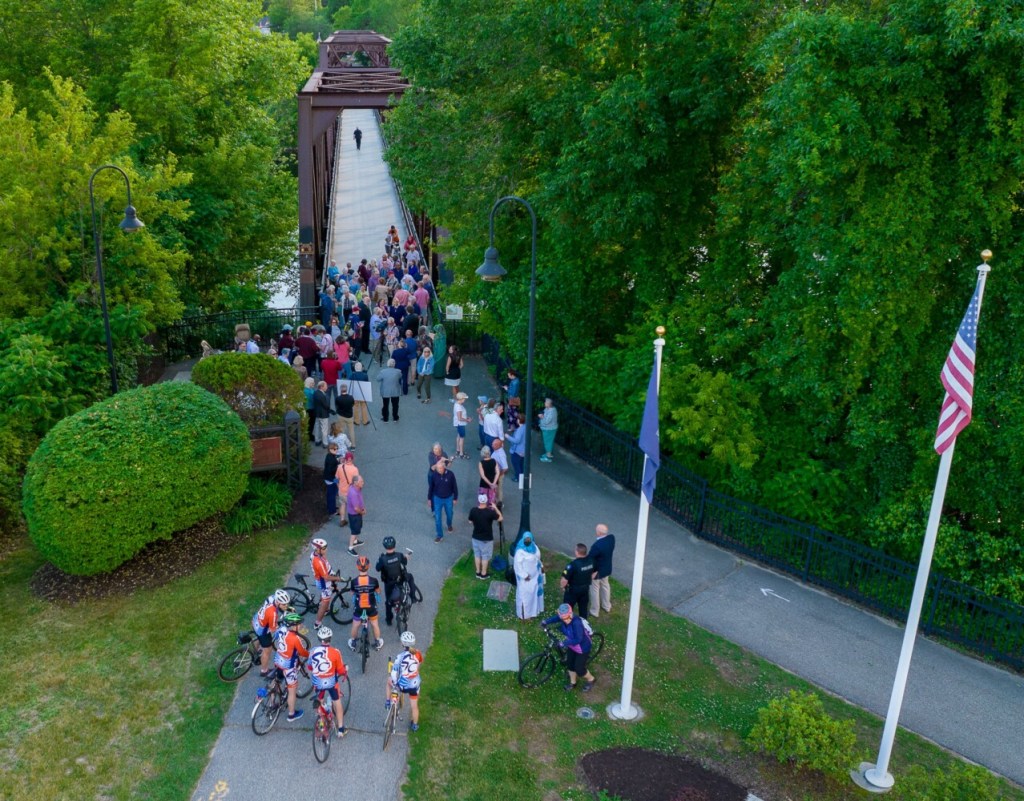
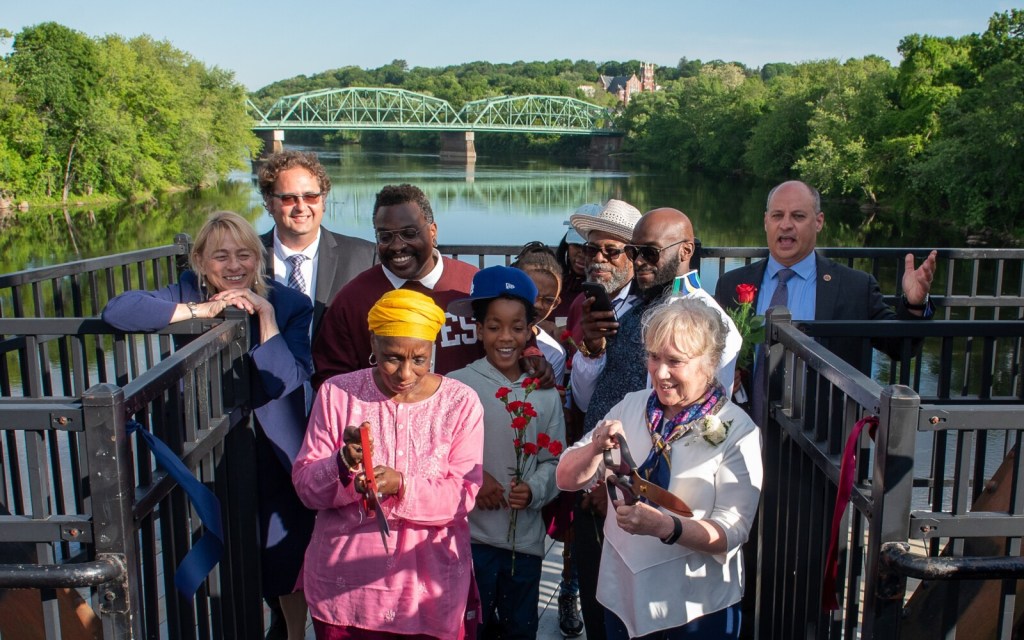
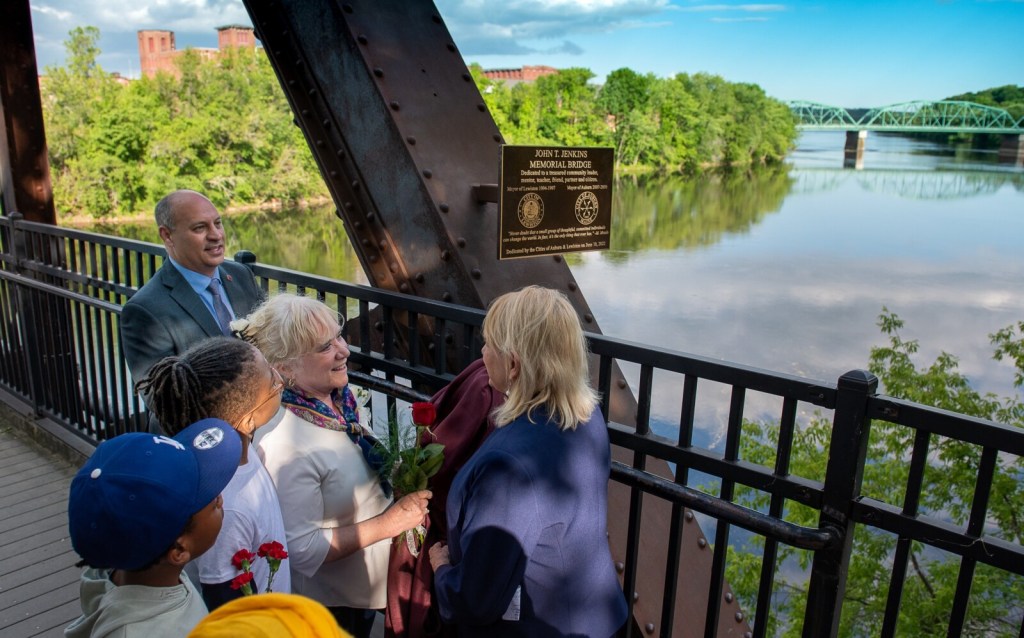
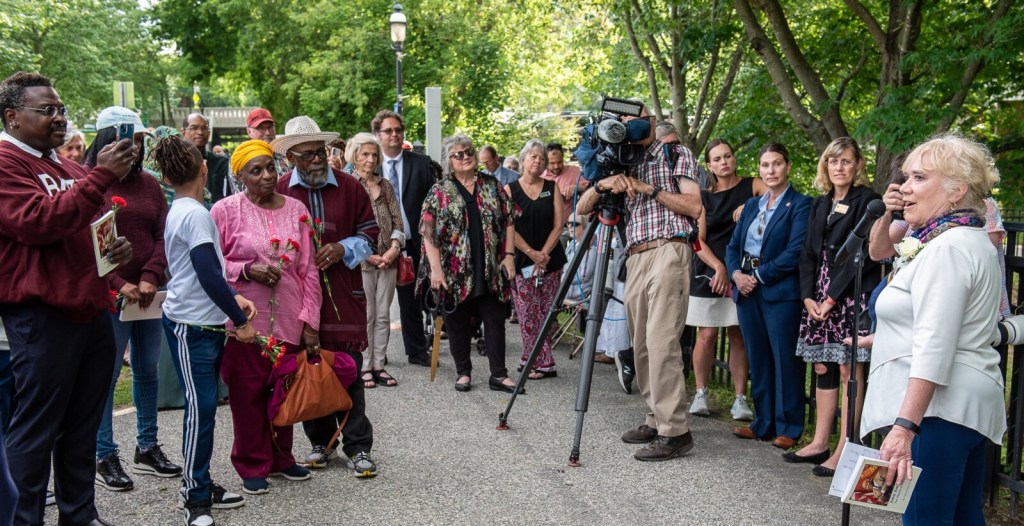
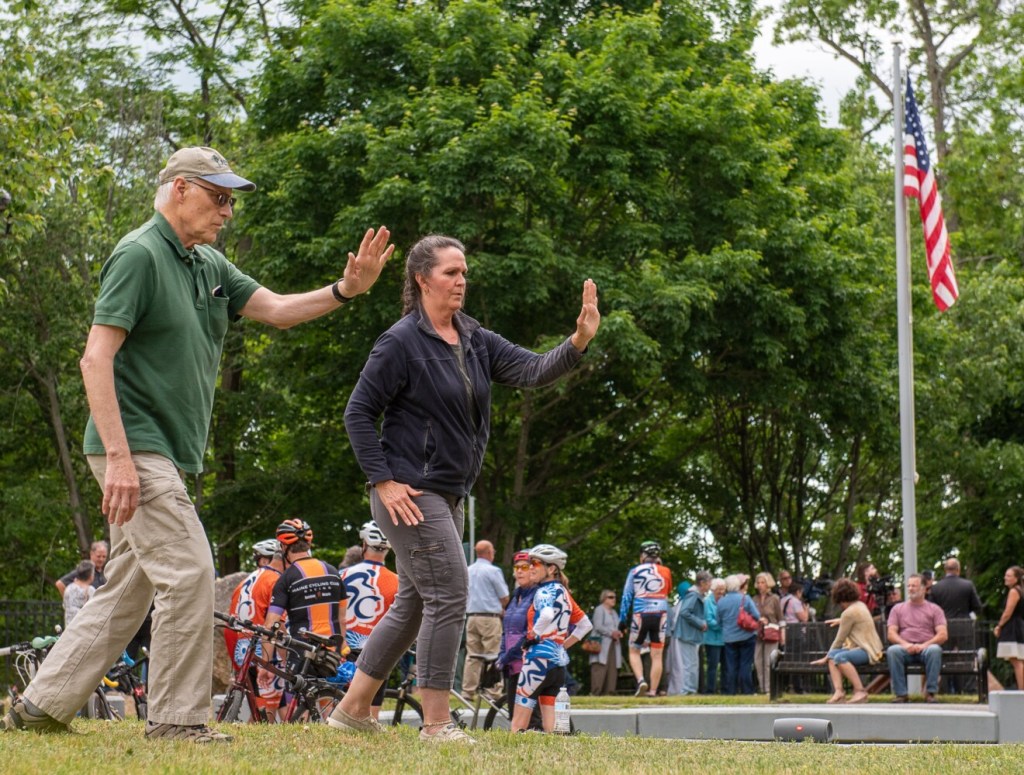
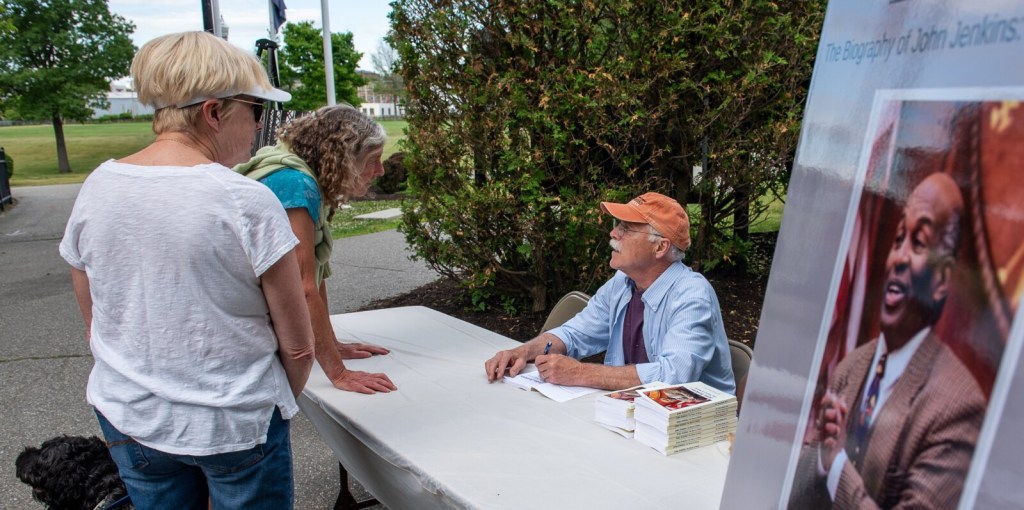

Comments are no longer available on this story